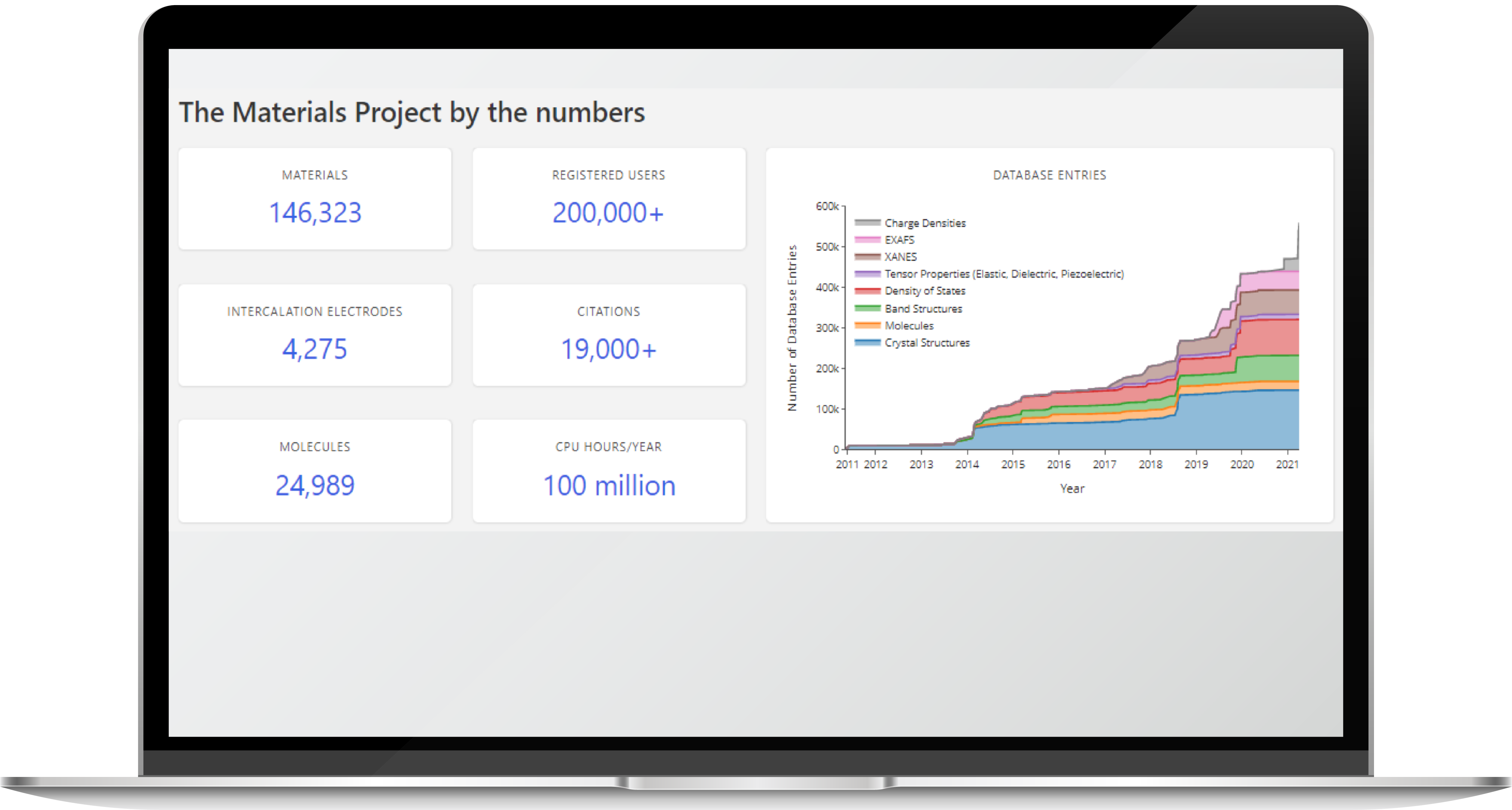Major U.S. research laboratory powers worldwide materials research with Dash and Python
Berkeley Lab builds a suite of open-source tools with Python and Dash that is accelerating materials science research
Wake steering is a wind farm control method that can increase annual energy production and reduce costs, however, the practice facInventing clean energy materials like solar cells, batteries and lasers is often time-insensitive and costly. Without a supercomputer and broad access to data, progress is slow. Lawrence Berkeley National Laboratory (Berkeley Lab) built the Materials Project website with Dash, providing over 200,000 worldwide users and contributors access to the supercomputing, software and data resources to discover new materials.
Free and open-source, the platform’s Python framework reduces the time costs of innovation and connects domain experts in materials science more directly with tool development and data sharing. Peer-reviewed publications linked to the project have been cited in research over 19,000 times, and have helped foster collaboration across the public and private sectors.
Download this user story to learn how:
- The Dash framework enabled the core team to build the Materials Project website using Python, and set the stage for researchers around the world to contribute their own applications.
- Interactive Dash apps and components written by and for materials scientists enable the exploration and analysis of nearly 150,000 inorganic materials and their properties.
- With over 5,000 research citations, the project promotes connectivity between researchers in areas such as carbon capture, better battery technology, and energy-efficient cooling and heating.

Running 100 million CPU hours each year, the project has helped the global research community screen through nearly 150,000 fundamental new materials and nearly 25,000 molecules for use in technologies such as new batteries.














